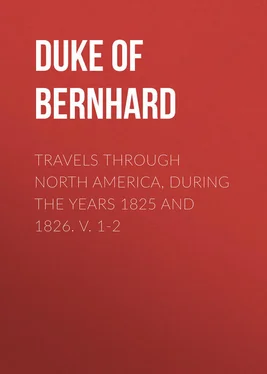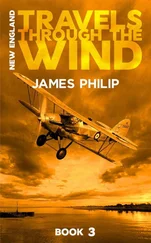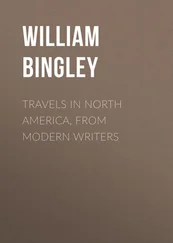Bernhard - Travels Through North America, During the Years 1825 and 1826. v. 1-2
Здесь есть возможность читать онлайн «Bernhard - Travels Through North America, During the Years 1825 and 1826. v. 1-2» — ознакомительный отрывок электронной книги совершенно бесплатно, а после прочтения отрывка купить полную версию. В некоторых случаях можно слушать аудио, скачать через торрент в формате fb2 и присутствует краткое содержание. Жанр: foreign_antique, foreign_prose, Путешествия и география, на английском языке. Описание произведения, (предисловие) а так же отзывы посетителей доступны на портале библиотеки ЛибКат.
- Название:Travels Through North America, During the Years 1825 and 1826. v. 1-2
- Автор:
- Жанр:
- Год:неизвестен
- ISBN:нет данных
- Рейтинг книги:4 / 5. Голосов: 1
-
Избранное:Добавить в избранное
- Отзывы:
-
Ваша оценка:
- 80
- 1
- 2
- 3
- 4
- 5
Travels Through North America, During the Years 1825 and 1826. v. 1-2: краткое содержание, описание и аннотация
Предлагаем к чтению аннотацию, описание, краткое содержание или предисловие (зависит от того, что написал сам автор книги «Travels Through North America, During the Years 1825 and 1826. v. 1-2»). Если вы не нашли необходимую информацию о книге — напишите в комментариях, мы постараемся отыскать её.
Travels Through North America, During the Years 1825 and 1826. v. 1-2 — читать онлайн ознакомительный отрывок
Ниже представлен текст книги, разбитый по страницам. Система сохранения места последней прочитанной страницы, позволяет с удобством читать онлайн бесплатно книгу «Travels Through North America, During the Years 1825 and 1826. v. 1-2», без необходимости каждый раз заново искать на чём Вы остановились. Поставьте закладку, и сможете в любой момент перейти на страницу, на которой закончили чтение.
Интервал:
Закладка:
Sir John Phillimore also accompanied me to see Mr. Harris , a surgeon, who has invented a new lightning conductor for ships. He has, for the sake of experiment, had the model of a frigate built, which he floats in a tub of water. There is a conductor to each mast, from which copper rods, secured close to each other, run down the mast to the keel, through which they pass into the water. Mr. Harris asserts, that the lightning passes down these rods without affecting any thing in the vicinity. To prove this, he wound around the mast a paper filled with fine gunpowder, through which the lightning was sent without exploding it. To prove farther, that the electricity can produce combustion after passing through water, he connected the conductor below the keel by a copper wire, with the touch-hole of a small cannon, which was floated in the tub. When the electricity strikes the conductor on the mast, the cannon is instantaneously fired. The cloud is represented by a frame stuffed with cotton, which hangs by a silk thread, and is connected with an electrical machine. Mr. Harris has a fine collection of philosophical apparatus; the lightning rod of his house communicates by conductors with a chime of bells, which are set to ringing whenever an electric cloud passes over the house; this happened during our visit. Mr. Harris has published a small pamphlet relative to his ship-conductor, of which he presented me with a copy. We were very much gratified with his experiments, and were grateful to him for his politeness.
The delay of the Pallas also afforded me an opportunity of seeing an East India ship launched. She was called the City of Rochester ; was built in London, and had sailed on her first voyage last autumn, for Bengal, but off the heights of Plymouth was struck by a tremendous hurricane with so much power as to wreck her to a degree that required rebuilding. I had an opportunity of examining her while on the stocks, and was pleased with her construction. She is intended to carry passengers. On the quarter-deck she has a parlour and two state-rooms, like the captain’s quarters in a ship of the line, and below, the rooms are distributed, as in the wardroom of a ship of the line, with this difference, that in a transport ship the chambers are larger and neater than in a ship of war. In each state-room there is a toilette, with a water-closet , which is exceedingly good and comfortable. As I had never seen a ship launched before, I was much interested. She rested upon two ways, and was retained by two wedges; at a given signal these were knocked away, and then by her own weight she was slowly and majestically launched into the water, amid the acclamations of a great crowd of people.
The celebrated General Mina , a victim of the troubles which existed in unfortunate Spain, met with a hearty welcome in England. But the humid climate of this island did not agree with him, and he was afflicted with rheumatism. Plymouth has the reputation of enjoying a very fine climate, and together with the great medical skill of Dr. Hammick , who has charge of the Marine hospital, is very much praised. For both these reasons, General Mina had selected Plymouth as his residence. I cultivated his acquaintance, and was witness of a very interesting ceremony in honour of him. The Spanish committee in London had voted him a sword, and a member of this society, Mr. Bowring , the same person who in 1824 was arrested in France, on account of a pretended treasonable correspondence, and soon after liberated again, was commissioned to present this sword to the general in a solemn manner. It was on the 2d of June, when a numerous and selected company met at the Royal Hotel of Plymouth, to attend this ceremony. As the general was introduced to the company, Mr. Bowring informed the public of the object of the meeting, and praised the merits of the brave general. He then addressed the general in Spanish, informed him of the decision of the committee, and finally displayed the diploma which accompanied the sword: this was drawn up in English and Spanish with great calligraphic splendour. The diploma and sabre were then presented to the general. The sword has a gold hilt, with the general’s arms on it, and a richly gilt sheath, the sides of which were beautifully embossed with emblems of the general’s services. Mina returned an answer in Spanish, and gave it to Mr. Bowring. One of the company quickly translated it into English, for the benefit of the public, whose long-continued applauses expressed their admiration of the brave general. Mr. Bowring invited me to a friendly entertainment that was to be given to Mina ; unfortunately I was obliged to decline it, as I had already made another engagement.
[The 5th of June was fixed upon for the sailing of the Pallas for Falmouth, but bad weather and high head winds detained her until the 7th. On the 9th, at 6 A. M. she arrived at Falmouth .]
This tolerably long town lay at the foot of a hill, on our left, and contains seven thousand inhabitants. It has by no means a brilliant appearance, as it is, like Devonport, built of grey limestone, and the roofs are slated. It is not visible from the sea, as a hill intervenes, upon which the citadel stands. On the right side of the bay there is an old castle, called St. Mawes, with about five houses, tenanted by poor fishermen; this castle is one of the often-mentioned rotten boroughs : it formerly was a town, and still sends two members to parliament.
The hills are mostly cultivated; some are employed as pastures. Trees are very rare, and few ships lay in the harbour. We anchored not far from the frigate Astrea, a guard-ship, and saluted her with eleven guns, which she returned. When we fired a salute on our arrival at Spithead, the oil was spilled from the sympisometer , and Captain Ryk was obliged to obtain a new one from London. To avoid a similar catastrophe, the sympisometer and chronometer were both kept in hands during this salute. The frigate Astrea, commanded by Captain King, serves as a depôt for all the packets, which sail hence to all parts of the world lying south and west of England, and are collectively under command of Captain King. The packets were formerly private property; the conveyance of the mail to foreign parts, was consequently not only very irregular, but a wide door was opened for smuggling. – On this account, the government, after having contracted with the former proprietors of the packets, assumed the sole direction. When a packet is no longer retained in service, a corvette or brig, commanded by a lieutenant of the navy, is substituted. At this time thirty-four packets were in service, of which fifteen were vessels of war, commanded by navy officers, the others were the old packets in charge of their former captains.
Soon after our arrival we were visited by the consul of the Netherlands, Mr. Lake, who brought me several letters. We afterwards received a visit from Captain King, a very entertaining old gentleman. At eleven o’clock, Captain Ryk and I went on shore, where we found a crowd assembled to witness our landing. We took lodgings in the Royal Hotel, a large, tastefully-arranged building, though in a very filthy street. We were much annoyed by the fish-market, which was immediately opposite to us; in this we saw very large and fine fish, as well as enormous shrimps, which are here very cheap. We repaired to the Custom House, where I made the necessary arrangements relative to the landing of my baggage, after which we visited Mr. Lake and Captain King. The latter lived without the limits of the city, near the bay, in a house, which, though old and small, is very handsomely situated in a garden, and commands a very fine prospect of the bay. The house is also historically remarkable: it was once inhabited by Oliver Cromwell.
Читать дальшеИнтервал:
Закладка:
Похожие книги на «Travels Through North America, During the Years 1825 and 1826. v. 1-2»
Представляем Вашему вниманию похожие книги на «Travels Through North America, During the Years 1825 and 1826. v. 1-2» списком для выбора. Мы отобрали схожую по названию и смыслу литературу в надежде предоставить читателям больше вариантов отыскать новые, интересные, ещё непрочитанные произведения.
Обсуждение, отзывы о книге «Travels Through North America, During the Years 1825 and 1826. v. 1-2» и просто собственные мнения читателей. Оставьте ваши комментарии, напишите, что Вы думаете о произведении, его смысле или главных героях. Укажите что конкретно понравилось, а что нет, и почему Вы так считаете.












